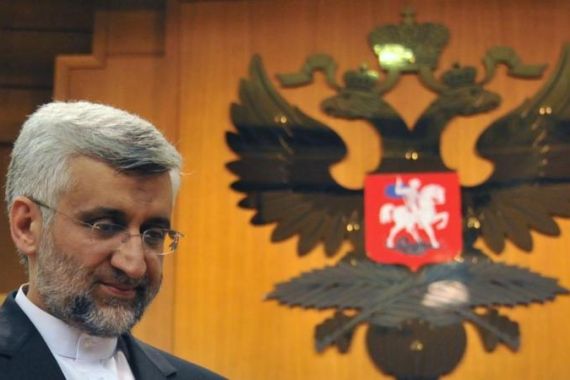Iran renews oil blockade warning
Naval chief of Revolutionary Guards says it could prevent even “a single drop of oil” passing through Strait of Hormuz.

Iran could prevent even “a single drop of oil” passing through the Strait of Hormuz if its security is threatened, country’s naval commander has said, as tensions simmer over Tehran’s nuclear programme.
Tehran will increase its military presence in international waters, Ali Fadavi, naval commander in Iran’s elite Islamic Revolutionary Guard Corps (IRGC) said on Saturday.
Iran’s oil exports have gone down drastically in recent months in the wake of sanctions by the West ostensibly over its clandestine nuclear programme, a charge the Islamic republic has denied.
“If [the US] do not obey international laws and the IRGC’s warnings, it will have very bad consequences for them,” Fadavi said, according to Iran’s Fars News Agency.
“The IRGC’s naval forces have had the ability since the [Iran-Iraq] war to completely control the Strait of Hormuz and not allow even a single drop of oil to pass through.”
Fadavi added: “IRGC special naval forces are present on all of the Islamic Republic of Iran’s ships in the Indian Ocean and to its east and west, to prevent any movement … This IRGC naval force presence in international waters will increase.”
Iran has repeatedly threatened to close the Strait of Hormuz shipping channel, through which 40 per cent of the world’s sea-borne oil exports passes, in retaliation for sanctions placed on its crude exports by Western powers.
The sanctions were imposed over Iran’s nuclear programme, which the West suspects is aimed at creating an atomic weapon.
Iran says the programme is for peaceful energy purposes.
The US has beefed up its presence in the Gulf, adding a navy ship last week to help mine-clearing operations if Iran were to act on threats to block the strait.
Tehran said last month it was building more warships, in part to guard Iranian cargo ships from pirates, and Iranian military leaders often assert Iran’s strength in the region and dominance in the Strait of Hormuz.
Yet military analysts have cast doubt on Iran’s willingness to block the slender waterway, given the massive US-led retaliation it would likely incur.
Sanctions in effect
Meanwhile, Iran’s oil minister has said his office has drawn up plans to make newly tightened sanctions against the Islamic Republic ineffective.
Rostam Qasemi said his ministry is at the forefront of an economic battle with the West. His remarks carried by ministry website shana.ir on Saturday did not elaborate on the plans.
Qasemi’s comments come two weeks after an EU oil embargo went into effect against Iran for its refusal to halt its uranium enrichment.
Iranian officials have earlier said they are organising a consortium of private companies to bypass the embargo, without specifying exactly how this will work. Iran has also said it can always find buyers for oil.
The US this week took additional measures to prevent Iran from circumventing sanctions.
The US Treasury identified Tehran’s main tanker firm – National Iranian Tanker Company – and dozens of its vessels as government-controlled entities. The body also identified four fronts for the National Iranian Oil Company.
Meanwhile on Friday, the US announced charges against an Iranian citizen and Chinese resident for allegedly trying to export nuclear-related material to help Tehran enrich uranium.